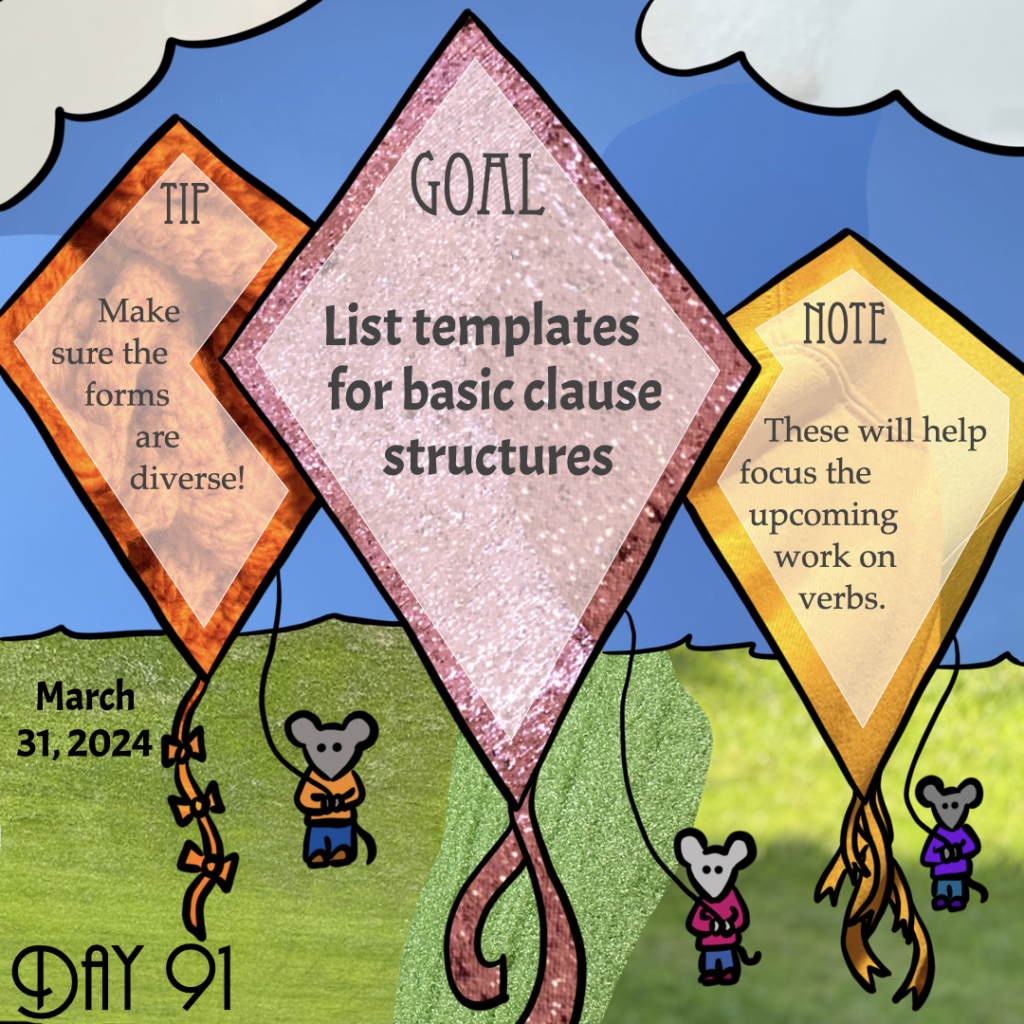
Goal: List templates for basic clause structures
Note: These will help focus the upcoming work on verbs.
Tip: Make sure the forms are diverse!
Work focus: Organize/Plan/Structure
In preparation for the upcoming focus on verbs, the goal for today is to create some basic clause “template” structures to work with. These will serve as forms to test ideas on as you start creating inflections and forms specifically for verbs and their phrases.
It’s best for the templates to incorporate verbs that have different valency structures (e.g. intransitive, transitive, ditransitive) and that occur with different kinds of nominal arguments. If your language inflects numbers or has noun classes, work on incorporating a variety of those features into your clause structures.
As an example, consider the following forms I created for one of my language sketches that appear in Conlang-Venture. It is a VSO language, and the nouns inflect for both number and case. Here are three templates I made for working with verbs:
- [*num] kufe emogẽ.
- EAT bear acc.berry.pl
- [*osjo] ‘isã ewũ.
- SWIM otter.pl loc.lake
- [*efko] yẽ foba’i lihõ.
- GIVE mouse dat.bird acc.seeds
I added the verb proto-forms in the structures where they will occur in the clause and also inflected the nouns for their appropriate forms for the language’s structures. When glossing the forms, I used all-caps to remind myself that the verb is in its bare form. I haven’t made any decisions about how the verb forms will be marked in this language, so I’m not sure what their final forms will be. Furthermore, I haven’t yet applied sound changes to the verb proto-forms because, if I create inflections as affixes, I want to remember what the verb looked like in its earlier stages as I attach the affixes I create.
There is no set number of templates you need, but I like to have at least ten to work with as a starting point because, chances are, that will give me a variety of phonological forms for my verbs and give me the ability to ensure I’ve included different valencies and different inflected forms of nominal arguments.
